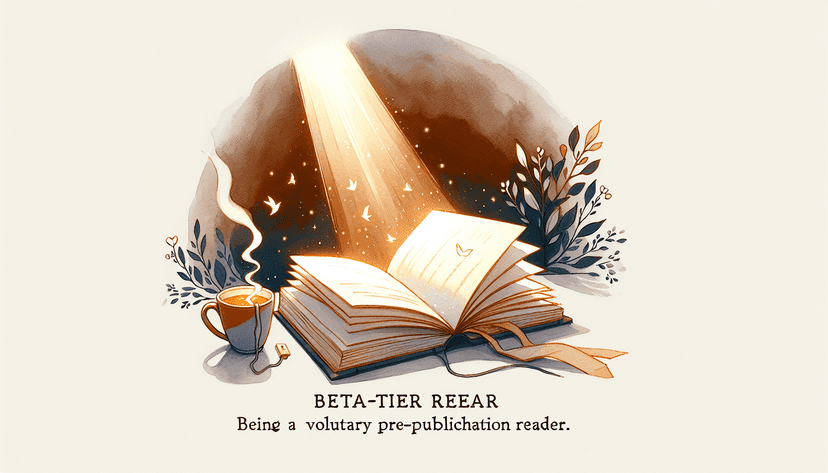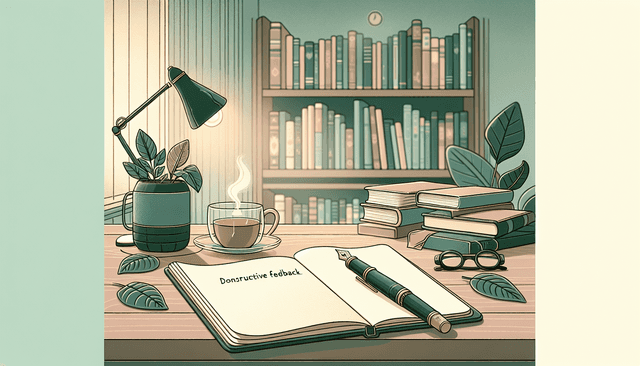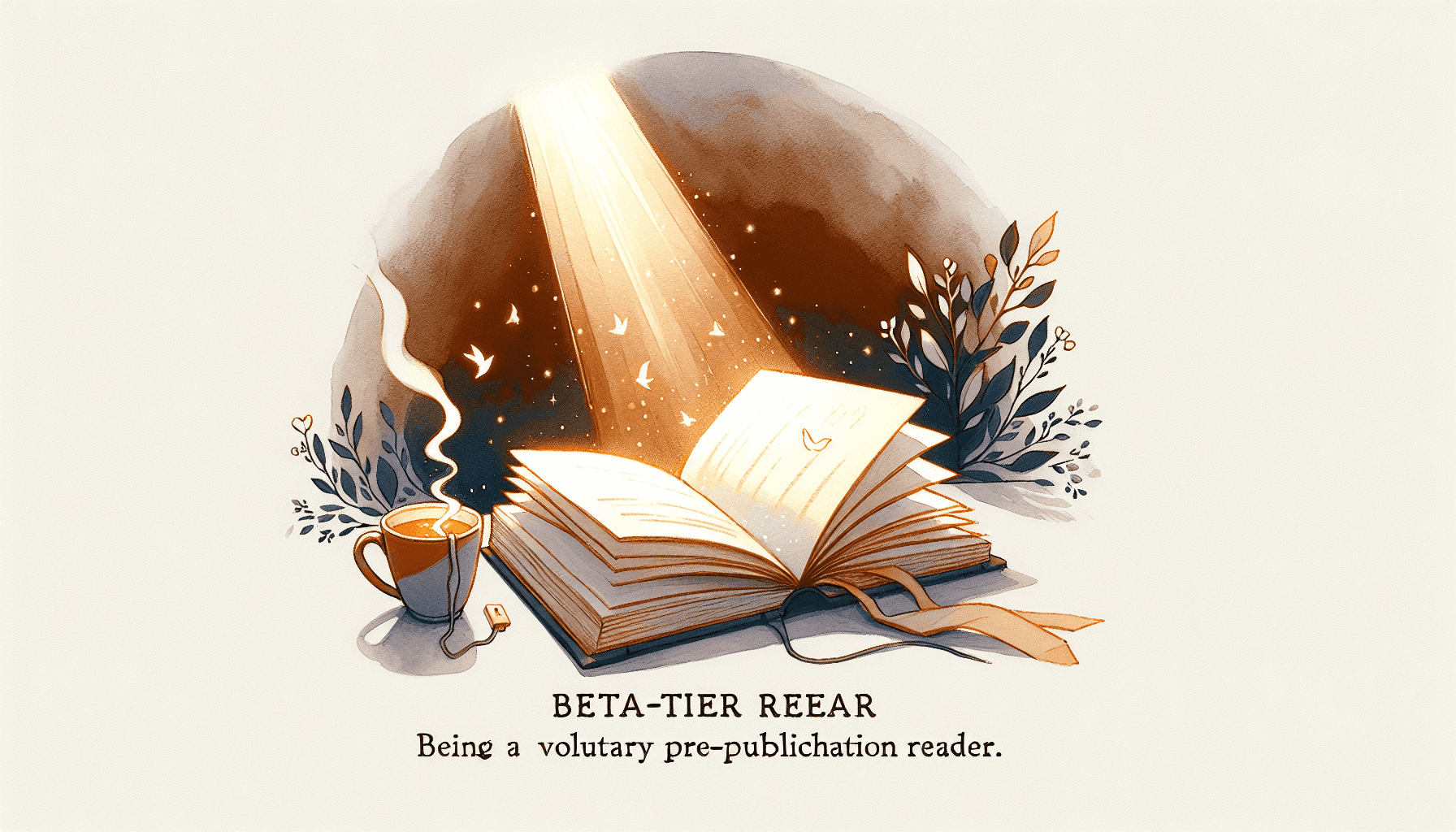Table of Contents
So, you’re interested in becoming a beta reader? That’s awesome! You might be feeling a bit overwhelmed, wondering where to start or what it actually involves. Don’t worry; you’re definitely not alone in feeling this way. Many aspiring beta readers share similar questions as they dive into the world of giving feedback.
Stick around, and I promise you’ll find the answers you’re looking for. Whether it’s understanding what a beta reader does, the qualities you need, or how to build solid relationships with authors, we’ve got it all covered. You’ll be well-prepared to jump into the fun world of beta reading in no time!
By the end, you’ll know the ins and outs of being a fantastic beta reader, including how to offer feedback that really counts. Plus, you’ll discover ways to connect with authors and other readers who share your passion. Ready to get started? Let’s dig in!
Key Takeaways
- Being a beta reader lets you support authors and enhance your understanding of storytelling.
- You don’t need formal training, but strong reading skills and story comprehension are essential.
- Join writing forums and social media groups to connect with authors looking for beta readers.
- Provide clear, specific feedback while balancing honesty with encouragement.
- Build lasting relationships with authors through respectful communication and understanding of their process.
- Always maintain confidentiality and respect authors’ timelines and feedback preferences.

How to Become a Beta Reader
Becoming a beta reader is an interesting way to contribute to the writing community and support authors in honing their craft.
To get started, you don’t need formal qualifications, but having a good understanding of storytelling can be a big plus.
Join online writing forums or social media groups where authors often look for beta readers. Websites like Goodreads or Automateed can be helpful.
Offer your services to friends or local writers; this personal connection can often lead to fruitful collaborations.
Understanding the Role of a Beta Reader
A beta reader is someone who reads a draft manuscript before it’s published. Your job is to provide your perspective on the story, characters, and overall flow.
Think of yourself as a friendly critic; your feedback helps the author refine their work without altering their unique voice.
Your insights can help identify plot holes, character inconsistencies, or pacing issues that the writer might miss.
Being a beta reader is about balancing honesty with encouragement because authors put a lot of heart into their work.
Skills and Qualities of a Good Beta Reader
A good beta reader should have strong reading comprehension skills and an eye for detail. You don’t need to be an English major, but understanding story structure is key.
Communication skills come into play here; you’ll need to express your thoughts clearly and tactfully.
**Empathy** is another important quality: being able to put yourself in the author’s shoes helps you deliver constructive feedback without discouraging them.
Patience is also a virtue, as you might need to read the manuscript multiple times to provide thorough comments.
Finding Opportunities to Beta Read
Finding opportunities to beta read is part art and part strategy. Start by reaching out within your social network or local writing community.
Many authors host calls for beta readers on platforms like Twitter, Instagram, or Facebook groups. Consider joining forums like NaNoWriMo where many writers seek feedback.
Websites like Automateed offer listings where writers can connect with beta readers.
Additionally, consider setting up a profile on writer-focused platforms like Wattpad or Scribophile, where you can find stories looking for feedback.

How to Provide Effective Feedback
Providing feedback is a crucial part of being a beta reader, and there are some key strategies to keep in mind.
Start with the positives; highlight what you enjoyed in the story to make your feedback feel encouraging.
Be specific when giving criticism. Instead of saying, “I didn’t like this part,” point out exactly what felt off and why.
Avoid vague comments; try saying something like, “The pace slowed down here because this section felt too detailed for the overall flow.”
Use examples to illustrate your points, referring back to the text when you can; this helps the author understand your perspective better.
Finally, try to provide actionable suggestions. Instead of just stating that a character feels flat, suggest ways to deepen their backstory or motivations.
Building Relationships with Authors
Building a good relationship with the authors you read for can lead to a rewarding long-term collaboration.
Start by being respectful of their vision and writing process; every author has their unique way of crafting stories.
Communicate openly about your expectations and availability. Let them know when you can provide feedback so they can plan accordingly.
Make it a point to follow up after submitting your feedback; ask if they found it helpful or if they have any questions for you.
Share your experiences or insights on writing too; authors appreciate beta readers who understand the challenges they face.
If an author feels comfortable with you, they might invite you back for future projects, which is a win-win situation!
Maintaining Confidentiality and Respect
As a beta reader, respecting the author’s work is paramount; keep their manuscript confidential and do not share it without permission.
If you’re part of a reading group or online community, remind yourself to avoid discussing the plot twists or ideas you’ve encountered.
You should also consider signing a non-disclosure agreement (NDA) if the author requests it; it solidifies trust in your partnership.
Make sure to respect their timeline and feedback preferences. Don’t pressure them for responses or rush them into making changes.
Lastly, remember that every author receives feedback differently, so adjust your communication style based on their preference.

Joining Beta Reader Communities
Joining beta reader communities is a fantastic way to connect with other readers and authors alike.
Online platforms like Facebook and Reddit have groups dedicated to beta reading where you can find opportunities.
Engage actively in these communities; share your experiences and seek advice on best practices.
In addition to social media, consider websites like Goodreads where dedicated groups often discuss beta reading and share opportunities.
Participating in writing forums or events like NaNoWriMo can also introduce you to aspiring authors searching for feedback.
Remember, these communities aren’t just for finding projects; they can be a supportive network where you can improve your skills and learn from others.
Continuous Learning and Improvement as a Beta Reader
Being a beta reader should be viewed as an ongoing journey of personal growth and skill enhancement.
Seek out resources like writing blogs, podcasts, or webinars that focus on feedback and editing to broaden your understanding.
Consider reading different genres outside your comfort zone; this exposes you to various writing styles and techniques.
After each beta reading, reflect on the process; what worked, what didn’t, and how you can improve for next time.
Engage with authors about their perspectives on your feedback; their insights can help you understand the impact of your suggestions.
Finally, don’t hesitate to ask for critiques on your feedback approach from other beta readers; a fresh perspective can offer invaluable lessons.
FAQs
A beta reader provides feedback on a manuscript before publication. They review the story for clarity, pacing, characters, and overall impact, helping authors identify areas for improvement and ensuring the text resonates with its intended audience.
To find beta reading opportunities, join writing communities online, participate in social media groups, and network with authors at events. Websites and forums can also help connect you with writers looking for feedback.
A good beta reader should have strong analytical skills, excellent communication abilities, and a keen eye for detail. Empathy and understanding of the author’s vision are also essential for providing constructive feedback.
Provide feedback that is specific, constructive, and respectful. Highlight strengths in addition to areas for improvement, and offer suggestions for enhancement. Make sure your comments promote a positive dialogue between you and the author.



